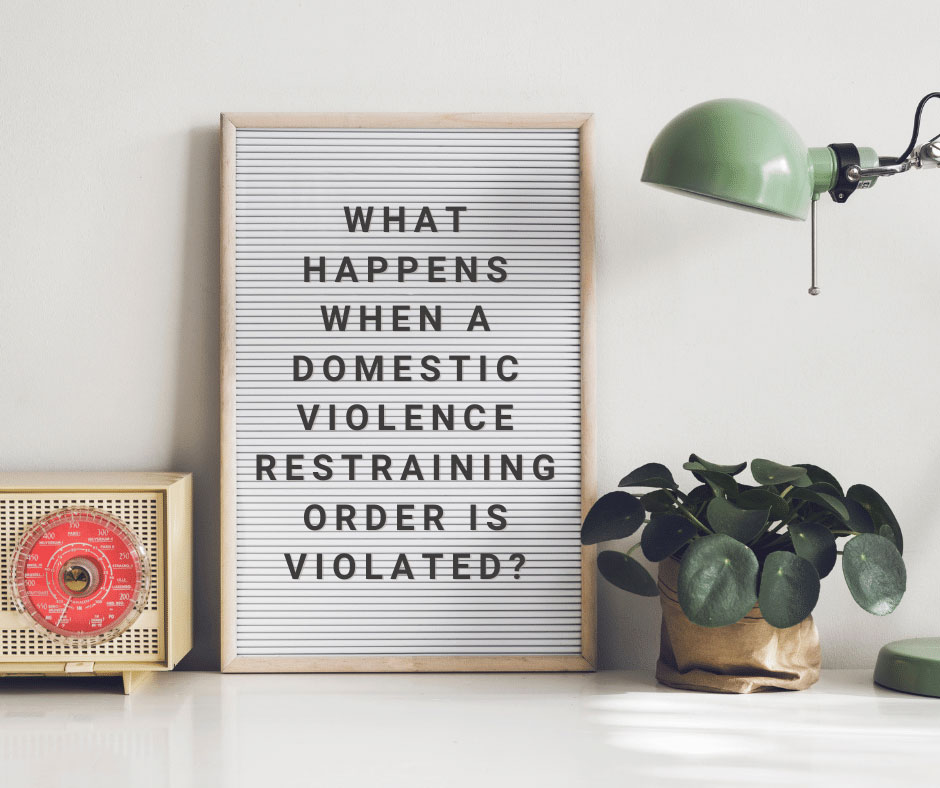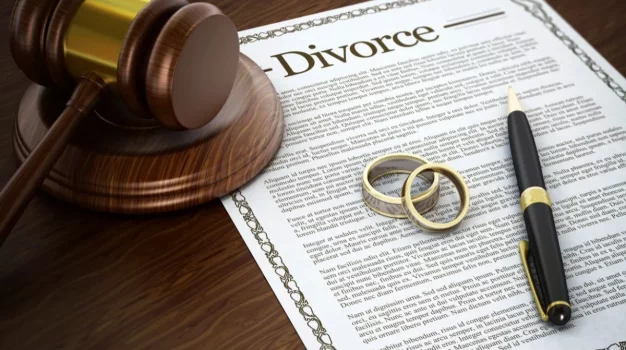What Happens When A Domestic Violence Restraining Order is Violated?
Domestic Violence is never okay. This is what happens if a Domestic Violence Restraining Order is violated.
A domestic violence restraining order is designed to help protect you and those you love from abuse or threats of abuse from an intimate partner, family member, or even someone you once dated. An Orange County domestic violence lawyer can help you obtain these restraining orders as well as seek criminal charges should they be violated.
Restraining orders are designed to keep someone who has been physically, emotionally, or psychologically abusive away from you and your family. Under these orders, a person is not allowed to make contact or come near your home, work, or your children’s schools.
If they lived with you, they must move out. If they had guns, they must turn them in. Of course, they cannot cease to support you or pay specific bills. These orders are common to most domestic violence restraining orders.
But what happens when an order has been violated? Are there ways to protect yourself and your loved ones?
Fortunately, the answer is yes. Keep reading below to find out how to enforce a restraining order.
The Steps To Take To Enforce a Restraining Order
Violations can occur in numerous ways, depending on the order. A person may be in violation if they make phone calls to the protected person, stalk a family member, or have contact with anyone that lives in the home where the protected person resides.
If you feel threatened, understand your rights and call an Orange County domestic violence lawyer. Doing so can propel you to take the next steps in providing a safe space for you and yours.
- Call 911 if you feel that you are in immediate danger. Keep a certified copy of your Restraining Order After Hearing and Proof of Service documents, that you received from the court clerk, with you at all times. With this proof, the violator may be arrested right away.
- If you are not immediately threatened, call the police and report the incident. In most states, police are able to enforce the order. Particular violations, such as no contact, are easier for police to impose. Violations such as failure to pay bills or child support are better enforced by the court.
- Contact your district attorney who may file criminal charges. In this case, it may be several months before the criminal case goes to trial. Be sure to write down everything that happened so that you are able to respond to the court’s questions with certainty.
- You may also go to the clerk’s office and file a civil contempt court action. In this instance, you are asking the court to find the violator in contempt of court because they did not follow the court order.
Again, you will need a detailed written report of the incidents, including time and date. You may also need to call on witnesses. The violator may choose to work with a court-appointed lawyer, making it imperative that you obtain counsel and call an Orange County domestic violence lawyer.
The Penalties for Violating a Domestic Violence Restraining Order
In California, those that willfully violate a restraining order may face a fine and a maximum sentence of up to one year in jail.
If, however, the violation is a second offense and involves an act of violence, they may be charged with a felony, sentenced to up to three years of imprisonment, and receive a maximum $10,000 fine.
There are also additional sentencing measures including contempt of court, criminal threats, stalking, and domestic battery.
In cases where the defendant is found guilty of contempt of court in a civil case, they can receive 5 days in jail for each violation.
Someone who has violated a restraining order that forbade him from possessing a firearm, may face federal charges. These charges can include a fine and up to 10 years in prison.
Special Considerations for Out-of-State Restraining Orders
If you are moving to another state or moving from another state to California, your restraining order can still be enforced.
Those moving to California before any violations have occurred will have to register your order with the court. You will need to bring a certified copy of your restraining order and the Order to Register Out-of-State form to the court clerk.
Once registered, make sure the clerk is putting your order in the computer system so that all California law enforcement agencies have access. If they are not, take a copy to your local police station.
On the other hand, if you are moving to a new state, contact the clerk of the court in California and report your new address. It is also suggested that you contact the court clerk in the new town that you have moved to.
There are varying state laws regarding registration and enforcement. In most instances, you will simply bring a certified copy of the order and register it in your new state.
This federal law also protects you should you travel to other states and the order is violated. Known as the Full Faith and Credit Clause, this section of the Constitution was designed to protect individuals wherever they may be within the U.S. and its territories.
Keep in mind that there are special circumstances, such as if you obtained a restraining order while on a military base. This order may not be enforceable when you are off base.
If you are moving, or find yourself in a unique set of circumstances, contact an Orange County domestic violence lawyer. They can recommend the best actions given your position.
Consult an Orange County Domestic Violence Lawyer
As seen above, the laws governing the enforcement of domestic violence restraining orders are somewhat complicated and diverse.
That said, what is certain is that securing the safety of you and your family makes it vital to pursue all legal options to ensure compliance of these orders.
At the Law Offices of Hollie A. Lemkin, we have over 18 years of experience when it comes to family law and domestic violence. Whether seeking a restraining order, filing criminal charges with local prosecutors, or looking into civil litigation, we are here to support you.





